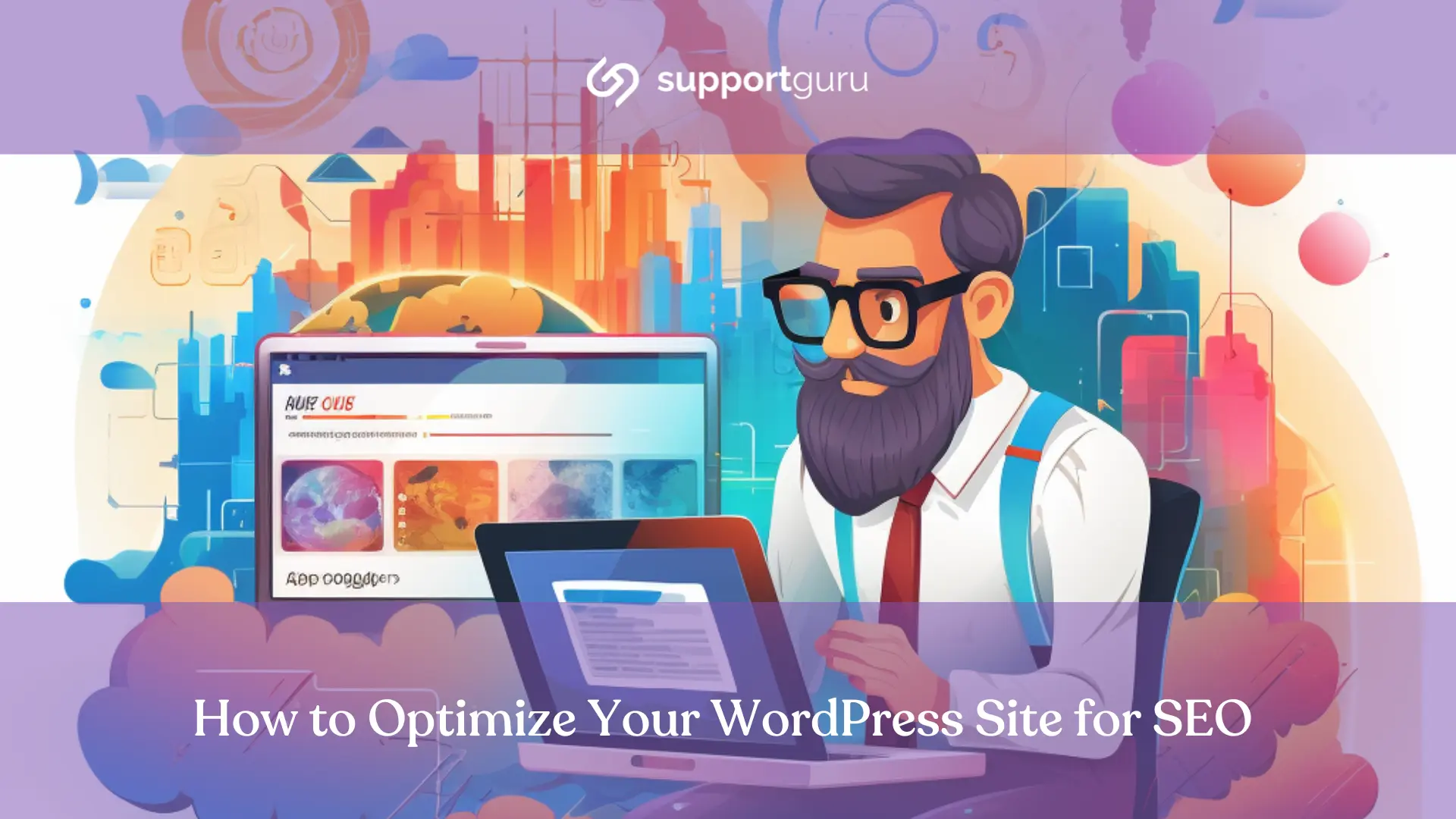What is SEO?
Search engine optimization is the process of increasing your website’s free, organic traffic.
By improving website structure, performance, speed, uptime, security, and content on your website, your ranking and visibility on search engines will increase.
A Guide to WordPress SEO
Here’s what you need to know in order to get started:
8 Ways to Optimize Your WordPress Site for SEO
1. WordPress Visibility Settings
Checking all the boxes is the first rule for adding SEO to WordPress.
By ensuring your visibility settings in WordPress, you’re doing yourself a huge favor.
The software offers a setting that allows you to hide your website from search engines.
Double-check that you haven’t turned off the feature on WordPress, found in the privacy section, or left it on after completing your website. If it’s on, it doesn’t matter how much you invest in search engine optimisation - your site won’t rank highly!
2. Update Permalinks
A permalink is a permanent URL or link to a specific page, post, blog, or any other feature on your website.
Changing permalinks is essential not only to improve the user experience but also to improve SEO.
Search engines typically read permalinks to determine whether or not the website has answers to specific search queries; having long or irrelevant permalinks could therefore decrease or affect your optimization efforts.
3. Use Tags and Categories
Tags are like keywords that you can use to describe a specific page or post. In order to add a new tag or view current tags, go to the Wordpress dashboard and click “Posts” and “Tags”.
Categories are the general umbrella in which posts and pages fall. In order to create a category, go to the WordPress dashboard, “settings” and click “writing”.
You will be able to see your current categories as well as an “Add New Category” button.
4. Choose SEO Plugins
WordPress allows for an exceptional number of plugins. Offering free and paid options, plugins allow for various features.
SEO plugins offer features that help you build XML sitemaps, implement tags and categories, optimize your titles and content with the use of: key phrases, keywords, site breadcrumbs, and Google Analytics support.
Some options include:
5. Use XML Sitemaps
A web server's XML sitemap is a code file that contains all of the pages on your website. XML sitemaps are used to help search engines find, evaluate, and rank the content found on your site.
Unless you have extensive coding knowledge and want to create an XML sitemap manually, your best chance is to dedicate your time to adding a plugin to your site.
6. Internally Links Your Site & Use Nofollow External Links
To further improve your SEO, increase your website’s authority. One of the various ways to improve authority is by the amount you internally link to your page, posts, blogs, and other content presented on various social media channels.
Once you highlight the words on your page where you want to insert the link, click the button in the WordPress toolbar, and copy and paste the URL you wish to link to.
7. Optimize Images
Optimizing everything on your WordPress website, including your visuals, which means your images, videos, and infographics.
To optimize images, use alt-text. Search engines read alt texts to better understand the description of the images, to best rank your site, and to determine whether or not your photos have the information benignly searched for by users.
Include the keyword you are targeting within the page or blog. This offers a greater chance of helping you rank higher on your website.
Make sure to compress them and select a type like WEBP to avoid having your page speed affected by how heavy these visuals are.
8. Manage Security
Managing security is essential. In order to gain the trust of your viewers, readers, or customers, your website needs to be secure.
Using SSL, or secure socket layer, manages an encrypted server and browser link.
Through the use of SSL, you can rest assured that the information shared between you and your visitors remains secure.
Secure and encrypted sites determine a website’s ranking. Google would be more likely to rank a site with SSL over anything else.
Be sure to keep your themes, plugins, and extensions up-to-date, as well as your WordPress core, since they are susceptible to security breaches.
Some plugins have the chance of being automatically updated; however, it is best to make sure through the settings offered in your WordPress dashboard.
Improve WordPress SEO
By implementing these 8 tips, you will increase your website’s authority and ranking on all search engines. Search engine optimization is a necessary step to help you land on the first page of the SERPs.
